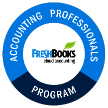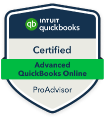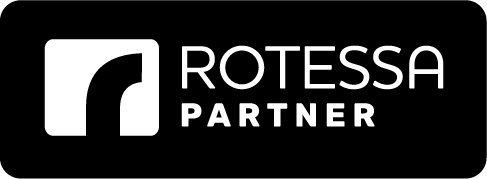
One of the most common questions small business owners ask is: How much can I earn before paying taxes? Whether you are self-employed, a sole proprietor, or running a partnership, accessing reliable accounting services for small businesses is key to understanding your tax obligations, avoiding unexpected costs, and ensuring compliance with the Canada Revenue Agency.
This guide will break down taxable income thresholds, tax obligations, and important rules for small business owners in Canada, including when you need to start collecting GST/HST and how CPP and EI contributions impact your business.
Do Small Businesses Have a Tax-Free Income Limit?
Unlike personal income taxes, there is no tax-free threshold for small business income in Canada. All profits earned by your business are taxable.
However, the amount of tax you pay depends on your business structure:
- Sole proprietors and partnerships pay taxes at personal tax rates on their business profits.
- Corporations pay a corporate tax rate, which is separate from personal taxes.
Taxable income is calculated after deducting eligible business expenses for sole proprietors and partnerships. The more deductions you claim, the lower your taxable income and the less tax you will owe.
When Do You Have to Start Paying Income Taxes?
Sole Proprietors and Partnerships
If you are self-employed, your business profits are taxed as personal income. You must report your income on Form T2125 and pay both federal and provincial taxes.
If you owe more than $3,000 in taxes ($1,800 in Quebec), the CRA requires you to make quarterly tax payments instead of paying in one lump sum at tax time.
Corporations
Incorporated businesses file a T2 corporate tax return and pay corporate income tax separately from the owner’s personal tax returns. Corporate taxes are always due six months after the fiscal year-end, but any amount owed must be paid within two months to avoid interest charges.
When Do You Need to Start Charging GST/HST?
Not every small business is required to collect and remit GST/HST. If your business makes less than $30,000 in taxable revenue in four consecutive calendar quarters, you qualify as a small supplier and are not required to charge GST/HST.
Once Your Revenue Exceeds $30,000
When your business surpasses $30,000 in revenue, you must:
- Register for a GST/HST number within 30 days
- Start charging GST/HST to customers
- File GST/HST returns with the CRA
If your business exceeds $30,000 in a single quarter, you must immediately start collecting sales tax on all sales going forward. If your business exceeds $30,000 over four consecutive quarters, you must begin charging GST/HST on the first day of the second month following the last quarter.
Even if your revenue is under $30,000, voluntarily registering for GST/HST allows you to claim input tax credits on business expenses, which can help reduce your overall tax burden.
CPP and EI for Small Business Owners
If you are self-employed, you are responsible for paying both the employer and employee portions of Canada Pension Plan (CPP) contributions.
- The CPP contribution rate for 2024 is 11.90 percent on income over $3,500, up to $68,500.
- CPP2, introduced in 2024, requires an additional 8 percent contribution on income between $68,500 and $73,200.
Self-employed individuals are not required to contribute to Employment Insurance (EI) unless they voluntarily opt-in to access EI benefits, such as maternity or parental leave.
What If You Hire Employees?
If you hire employees, you must:
- Register for a payroll account before their first payday
- Deduct income tax, CPP, and EI from their pay
- Remit these amounts to the CRA by the 15th of each month
Employer Contribution Rates for 2024
- CPP: Employers match employee contributions at 5.95 percent, up to $68,500.
- EI: Employers contribute 1.4 times the employee’s EI premium.
Make Tax Season Easier
Every small business in Canada must pay taxes on its profits, but the amount owed depends on business structure, revenue, and eligible deductions.
To avoid penalties and interest charges:
- If you are self-employed, carefully track your profits, expenses, and tax payments.
- If your business earns over $30,000, register for GST/HST to stay compliant.
- If you hire employees, be prepared to deduct and remit payroll taxes.
Done-for-you Accounting Services from Accounting by Sal
Managing business taxes can be complex, but expert guidance can help. Accounting by Sal offers accounting services for small businesses so owners can easily track finances, prepare for tax season, and comply with CRA requirements.
Contact Accounting by Sal today to ensure your business is tax-ready.














